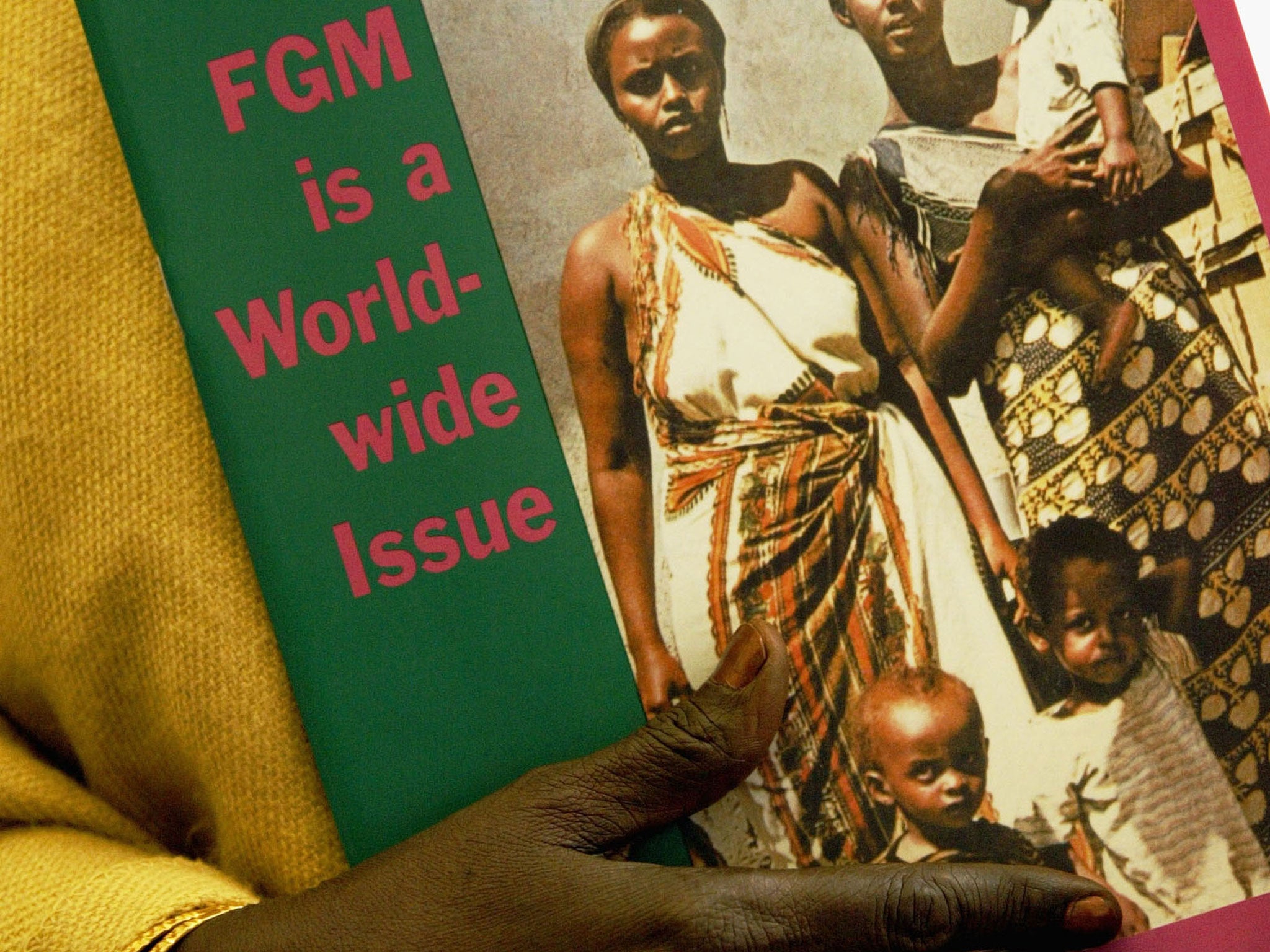10-year-old girl bleeds to death after undergoing FGM in Somalia
Campaigners condemn FGM as 'human lives issue' after young girl Deeqa Dahir Nuur passes away after suffering severe bleeding following botched operation

Your support helps us to tell the story
From reproductive rights to climate change to Big Tech, The Independent is on the ground when the story is developing. Whether it's investigating the financials of Elon Musk's pro-Trump PAC or producing our latest documentary, 'The A Word', which shines a light on the American women fighting for reproductive rights, we know how important it is to parse out the facts from the messaging.
At such a critical moment in US history, we need reporters on the ground. Your donation allows us to keep sending journalists to speak to both sides of the story.
The Independent is trusted by Americans across the entire political spectrum. And unlike many other quality news outlets, we choose not to lock Americans out of our reporting and analysis with paywalls. We believe quality journalism should be available to everyone, paid for by those who can afford it.
Your support makes all the difference.A 10-year-old girl has bled to death after undergoing female genital mutilation (FGM) in Somalia in the most high-profile case ever confirmed in the country.
Deeqa Dahir Nuur, from the Olol village in Galmudug state, passed away from severe bleeding after undergoing the procedure on the 14 July. The operation severed a vein and her family were still unable to stem the haemorrhaging two days later.
The was taken to Dhusmareb hospital where she bled to death, activist Hawa Aden Mohamed of the Galkayo Education Centre for Peace and Development told The Independent.
The Galmudug state minister for women’s affairs visited the family in hospital to offer condolences and explain the risk of death in FGM operations.
The woman who performed the operation has reportedly not been arrested, with no law currently in place that would ensure she would be punished for the act.
“Sadly the case may just end at that – a mere statistic,” Ms Mohamed added. “This is just one among many cases happening on a daily basis across Somalia.”
But it marks the most high profile FGM death confirmed in Somalia, where 98 per cent of women and girls are cut, the highest percentage anywhere in the world.
Activists hope the publicity surrounding Deeqa's death may help debunk myths in Somalia that FGM is safe and bring attention to their commitment to a zero-tolerance policy to FGM.
Nikolai Botev, Somalia representative of the United Nations Population Fund (UNFPA) decried the suffering that continues to hound girls and women subjected to FGM, saying: “We are extremely saddened by the death of Deeqa Dahir Nuur.
“FGM is also a factor in the very high maternal mortality that Somalia continues to experience. It is thus not just a human rights issue but also a human lives issue. Hence our commitment to zero tolerance of FGM.”
It comes as the first national gathering on FGM opened in the Somali capital Mogadishu, attended by Somali leaders and influencers reflecting the success and challenges to end the procedure.
Somali Deputy Minister of Health Mohamed Said Abdilah was reported to have said: “It is a huge health issue because of maternal mortality, child mortality... FGM is a huge priority for us.”
Deputy Minister for Defence Abdulahi Olad meanwhile said: “We need to start an official campaign to end FGM. Majority opinion so far seems that FGM is not a healthy choice causing all types of damage to Somali women and girls.”
Brendan Wynne, of international women's organisation Donor Direct Action, which runs a fund for front line FGM groups, said: "FGM is usually so hidden and takes places in secret. Groups working on it know that girls are dying from it but it is rare for cases to be confirmed as families and often doctors give other reasons for the deaths.
“I can't remember the last case in Somalia that reached international media. Pro-FGM lobbyists sometimes put forward the nonsensical view that it is not harmful, which is completely untrue. It often has lifelong medical and psychological consequences - and as we have seen, can cause girls to die. We have no more time for any debate on the harms of FGM and this case, like many others, proves that.”
FGM in Somalia is constitutionally illegal, but pressure from conservative and religious groups prevents lawmakers from passing legislation to punish offenders.
Globally, the most severe form of FGM is thought to affect some 130 million women and girls, most of whom are cut by untrained midwives or healers using tools ranging from knives and razors to broken glass and sharpened sticks.
Join our commenting forum
Join thought-provoking conversations, follow other Independent readers and see their replies
Comments